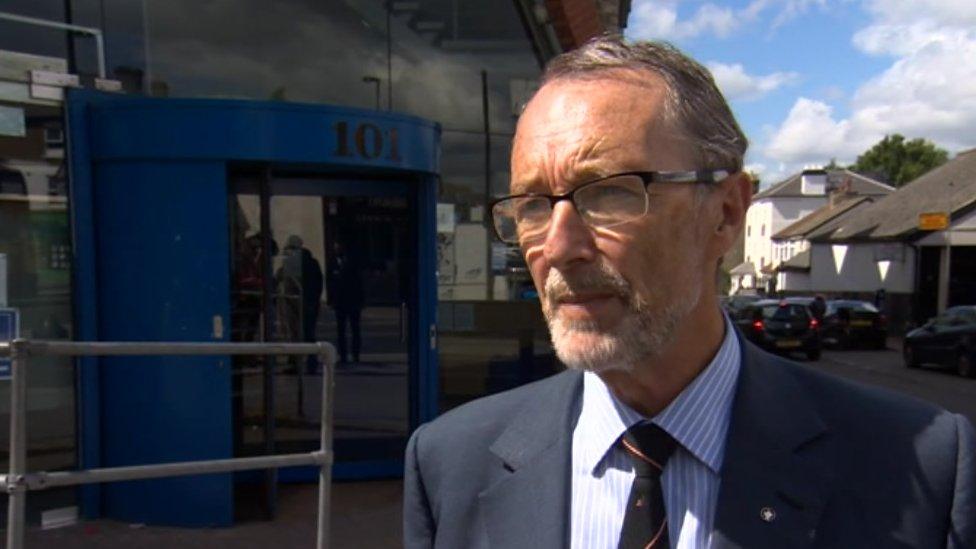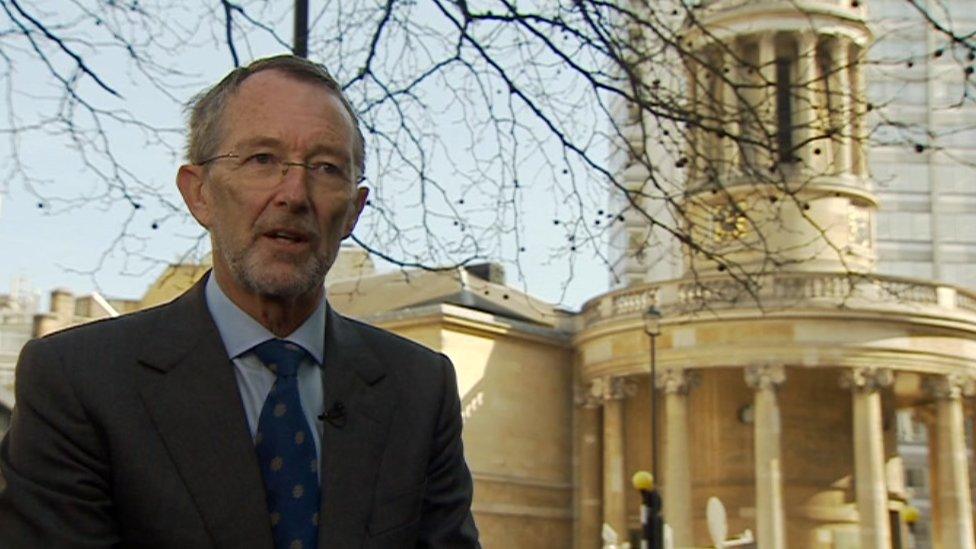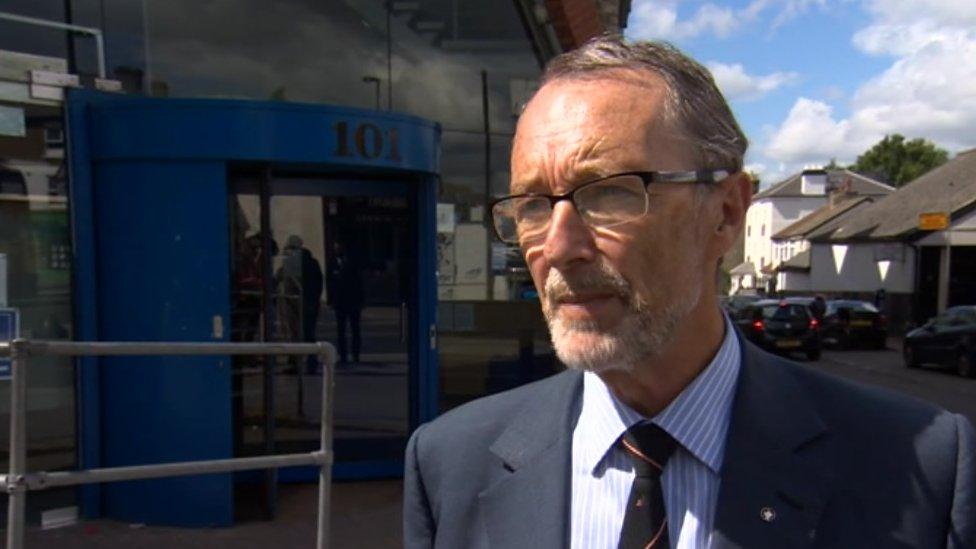Gay adoption row magistrate Richard Page loses appeal
- Published

Richard Page was removed from the bench in 2016
A former magistrate who claimed he was wrongfully sacked for voicing his beliefs has lost a Court of Appeal challenge against his dismissal.
Richard Page, of Headcorn, Kent, was removed from the bench and dismissed from a senior NHS role in 2016.
He claims this was because he expressed his Christian views on parenting following a same-sex adoption case.
He brought a legal challenge against the government and the NHS Trust Development Authority.
In 2014 Mr Page objected to an adoption application by a same-sex couple and told colleagues he has an issue with the idea of a same-sex couple adopting the child.
Complaints were made, alleging that Mr Page was prejudiced against same-sex couples, which he denied.
Mr Page was referred to a conduct panel after taking part in a BBC interview in March 2015 and removed from his office a year later.
He was also suspended from his role at the Kent and Medway NHS and Social Care Partnership Trust and told his contract would not be renewed.
Mr Page argued he was discriminated against and faced victimisation because of his religion and beliefs.
But ruling on his case, a panel of judges threw out his appeals on Friday.
'Superimpose beliefs'
Lord Justice Underhill said: "The basis on which he was dismissed was entirely lawful and involved no breach of his human rights."
Lord Justice Jackson said Mr Page had shown himself "incapable of honouring his undertaking" to act as a magistrate in a way that was free from bias.
He added: "A child's future is to be decided on the evidence before the court and in accordance with the law... It is not open to individual judges to superimpose their own beliefs, however sincerely held."
The appeal judges refused to grant permission for Mr Page to take his case to the Supreme Court.
'Chilling decision'
However, Mr Page indicated that he intends to apply directly to the Supreme Court for permission to challenge the Court of Appeal rulings.
Andrea Williams, chief executive of the Christian Legal Centre, said: "This is an unfair and chilling decision, and the Supreme Court should put it right.
"The judgment sends a direct message to Christian public servants that if they allow their beliefs to influence their decision-making while in public office, they must self-censor and be silent, and are ultimately unfit for that office."
Related topics
- Published3 November 2020

- Published10 March 2016

- Published14 May 2019

- Published23 October 2017

- Published2 August 2017

- Published1 August 2017

- Published28 March 2016

- Published13 March 2016
